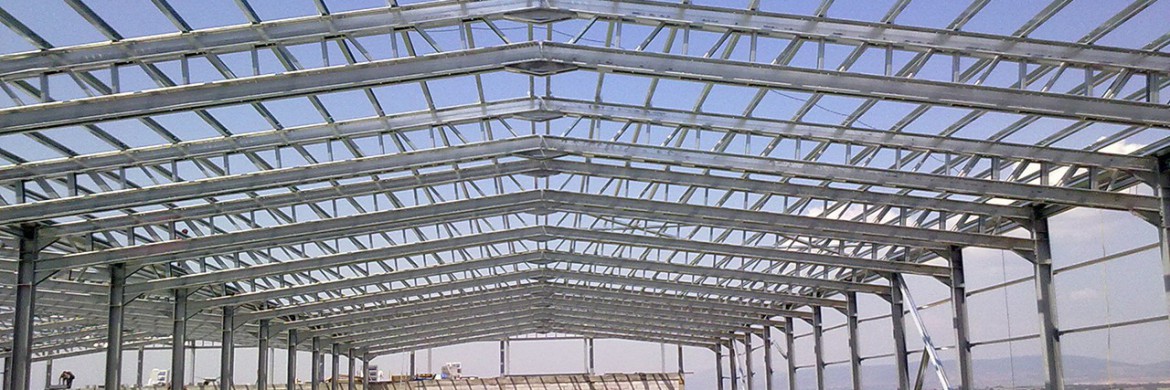Where Are Steel Roof Systems Most Commonly Used in Construction?
Steel roof systems are widely recognized for their durability, cost-effectiveness, and resistance to harsh weather conditions. These qualities make them a popular choice in various construction projects. Steel roofs are commonly used in industrial facilities, commercial buildings, residential homes, and agricultural structures. Their versatility allows them to be adapted to different architectural styles and functional requirements. Moreover, steel roofing is preferred in areas prone to extreme weather, providing enhanced protection and longevity for the building.
Projects Where Steel Roof Systems Are Commonly Used
There are numerous projects where steel roof systems are favored due to their advantageous properties.
- Industrial Facilities: Factories and warehouses often utilize steel roofs for their robustness and ability to withstand heavy loads.
- Commercial Buildings: Offices, stores, and shopping centers benefit from the aesthetic flexibility and durability of steel roofing.
- Construction Sites: Temporary structures may also employ steel roofs for quick installation and weather resistance.
- Sports and Event Facilities: These venues use steel roofs for their spacious designs and acoustic properties.
Steel Roofs for Industrial Facilities
Steel roofs are particularly suitable for industrial facilities due to their strength and durability. These roofs can endure harsh environmental conditions, heavy machinery operations, and significant wear and tear. Steel roof sheeting is often used in factories and warehouses to protect stored goods and equipment. Furthermore, installing steel roofs is usually cost-effective and efficient, allowing large areas to be covered quickly. The low maintenance requirements of steel roofs make them an ideal choice for industrial settings.
Steel Roofs for Commercial Buildings and Shopping Areas
Steel roofs offer a blend of durability and aesthetic appeal in commercial buildings and shopping areas. Steel roof projects in these settings often aim to create visually attractive yet resilient structures. The variety of finishes and colors in steel roof sheeting allows architects to design eye-catching facades. Additionally, steel roofs provide excellent protection against leaks and moisture, crucial for maintaining a comfortable shopping experience. Their energy efficiency can also contribute to reducing operational costs in commercial establishments.
Steel Roofs for Construction Sites and Temporary Projects
Construction sites and temporary projects frequently utilize steel roofs due to their practicality. These roofs can be installed rapidly, providing immediate protection for on-site materials and equipment. Steel roof sheets are lightweight yet strong, making them easy to transport and handle during the construction process. The weather resistance of steel roofing ensures that projects can proceed smoothly, even in adverse conditions. Once the temporary need is over, steel roofs can often be reused or repurposed in other projects.
Use of Steel Roofs in Sports and Event Facilities
Steel roofs are a popular choice for sports and event facilities, thanks to their structural advantages. They allow for large, open interior spaces without the need for excessive support columns. This characteristic is beneficial for arenas and exhibition centers. Steel roofing also offers excellent acoustics and can be designed to incorporate insulation for temperature control. Moreover, the durability of steel roofs means they can withstand the rigors of various events, making them a long-lasting investment for such facilities.
Common Characteristics of Projects That Prefer Steel Roofing
Projects that prefer steel roofing often share several common characteristics. Firstly, these projects typically require high durability and resistance to environmental factors. Secondly, budget considerations play a crucial role; steel roofs are favored for their cost-effectiveness over time, including low maintenance needs. Additionally, projects looking for design flexibility often choose steel roofing, as it can be adapted to various styles. Finally, the need for quick installation and construction efficiency is a key characteristic of such projects.
In Which Project Types Is Steel Roofing Not Recommended?
Despite their advantages, there are certain project types where steel roofing is not recommended. Projects requiring extensive thermal insulation, such as residential buildings in extremely cold climates, may benefit more from alternative roofing materials. Additionally, buildings with highly complex architectural designs that demand elaborate roofing solutions might be unsuitable for steel roofs. Finally, in environments with high corrosion potential, such as coastal areas, specific protective measures are needed; otherwise, steel roofing might not be the best choice.
Key Advantages of Steel Roof Systems
Steel roof systems offer several key advantages that contribute to their popularity in construction.
- Durability: Steel roofs are incredibly strong and can last for decades with proper maintenance.
- Cost-effectiveness: They require less maintenance and repair, saving money in the long run.
- Weather Resistance: Steel roofing provides excellent protection against rain, snow, and wind.
- Energy Efficiency: With proper insulation, steel roofs can help reduce energy costs.
- Environmental Sustainability: Steel is recyclable, making it an eco-friendly roofing option.
Choosing the Most Suitable Steel Roof System for Your Project
Selecting the most suitable steel roof system for a project involves considering several factors. Firstly, assess the specific needs of the project, including size, design, and functional requirements. Secondly, take into account the environmental conditions; choose materials that offer appropriate resistance to local weather. It is also essential to evaluate the available budget and opt for a roofing system that provides the best value for money. Finally, consult with professionals to ensure proper installation and compliance with building codes.

